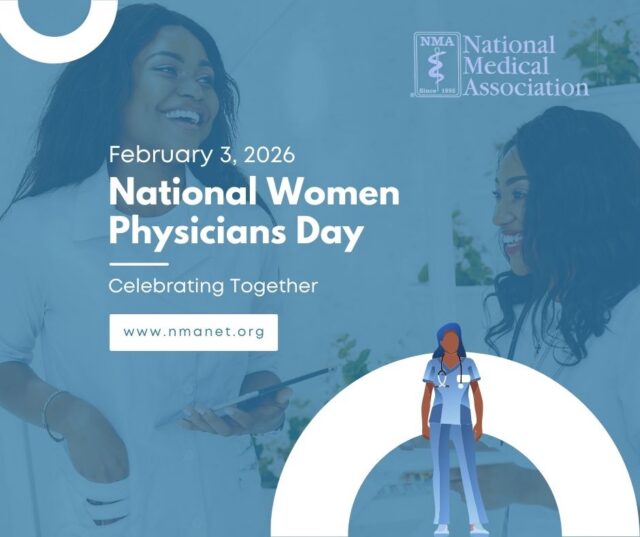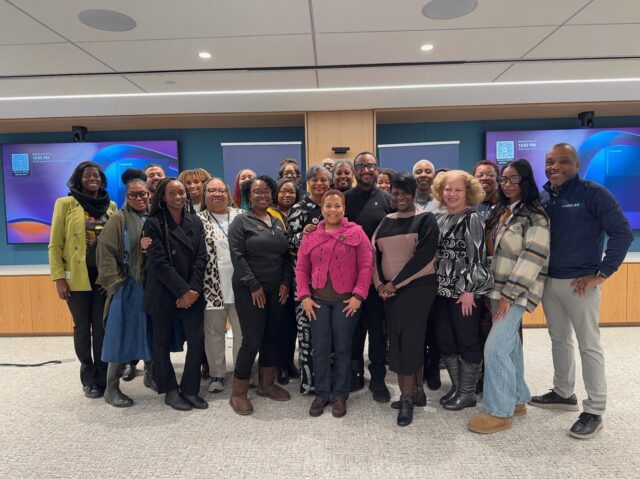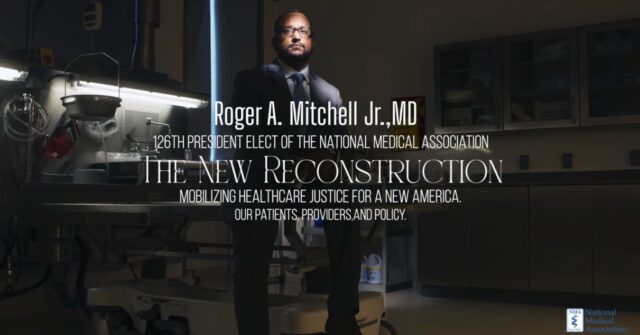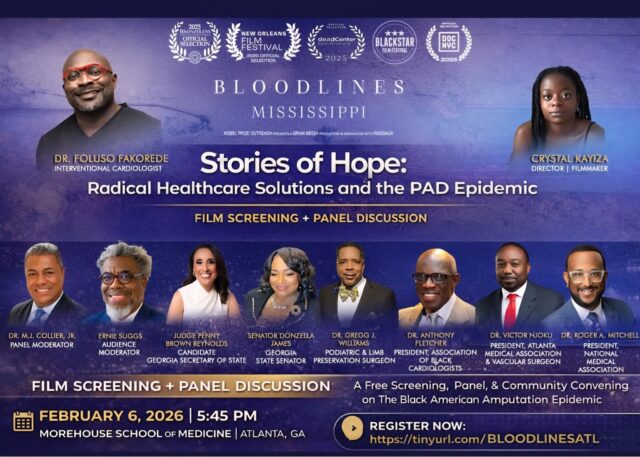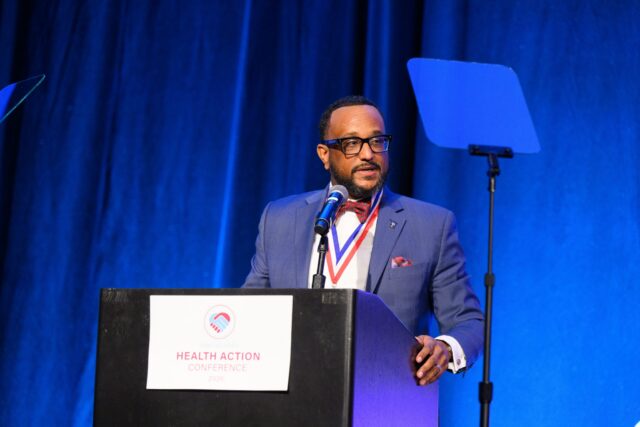Leading Physician Organizations Urge HHS to Collect, Analyze, Release COVID-19 Data on Mortality by Race, Ethnicity
“These data are essential to understanding the unique challenges and inequities facing communities of color”
CHICAGO – Leading national physician organizations today urged the Trump Administration to collect, analyze, and make available data including race, ethnicity, and patients’ preferred spoken and written language related to the testing status, hospitalization, and mortality associated with COVID-19.
“It is well-documented that social and health inequities are long-standing and systemic disturbances to the wellness of marginalized, minoritized, and medically underserved communities,” the letter says. “While COVID-19 has not created the circumstances that have brought about health inequities, it has and will continue to severely exacerbate existing and alarming social inequities along racial and ethnic lines, e.g., in housing stability, in employment status, in healthcare access, and in food security.”
“Clear data on our patients’ access to timely testing, clinical encounters, and mortality rates will help to best prepare our physician members to coordinate medical resources to leverage the greatest and most equitable level of care possible for all patients in a timely manner. We also urge HHS to work with state and local public health offices and clinical data registries, where possible, to minimize data burden collection for front-line clinicians, and to ensure that data collection efforts prioritize cultural sensitivity and patient privacy.”
The letter to U.S. Department of Health and Human Services (HHS) Secretary Alex Azar is signed by the American Medical Association, American Academy of Pediatrics, American Academy of Family Physicians , National Medical Association, National Hispanic Medical Association, Association of American Indian Physicians, and National Council of Asian Pacific Islander Physicians. To download a pdf copy of the letter, click here.
The complete text of the letter is below:
The Honorable Alex Azar
Secretary
U.S. Department of Health and Human Services
200 Independence Avenue, SW
Washington, DC 20201
Re: Data Collection and Public Release by HHS Agencies of COVID-19 Testing, Hospitalization, and Mortality by Race and Ethnicity
Dear Secretary Azar:
On behalf of our physician and medical student members of the American Medical Association, the American Academy of Pediatrics, the American Academy of Family Physicians, the National Medical Association, the National Hispanic Medical Association, the Association of American Indian Physicians, and the National Council of Asian Pacific Islander Physicians, we urge the U.S. Department of Health and Human Services (HHS) to collect, analyze, and make available to the public, explicit, comprehensive, standardized data on race, ethnicity, and patients’ preferred spoken and written language related to the testing status, hospitalization, and mortality associated with the pandemic novel coronavirus, COVID-19. These data are essential to understanding the unique challenges and inequities facing communities of color and individuals with Limited English Proficiency (LEP). Our physician members are wholly committed to the health and safety of all our patients during this crisis, including those who are historically marginalized, minoritized, and medically underserved. However, to date, federal COVID-19 data collection efforts do not contemplate race, ethnicity, or patients’ preferred spoken or written language. Clear data on our patients’ access to timely testing, clinical encounters, and mortality rates will help to best prepare our physician members to coordinate medical resources to leverage the greatest and most equitable level of care possible for all patients in a timely manner. We also urge HHS to work with state and local public health offices and clinical data registries, where possible, to minimize data burden collection for front-line clinicians, and to ensure that data collection efforts prioritize cultural sensitivity and patient privacy.
It is well-documented that social and health inequities are long-standing and systemic disturbances to the wellness of marginalized, minoritized, and medically underserved communities. While COVID-19 has not created the circumstances that have brought about health inequities, it has and will continue to severely exacerbate existing and alarming social inequities along racial and ethnic lines, e.g., in housing stability, in employment status, in healthcare access, and in food security. Minoritized, marginalized, and medically underserved communities experience higher rates of chronic disease, such as diabetes, hypertension, and asthma, compared to non-Hispanic White communities. These health conditions predispose them to greater risk of mortality should they contract COVID-19. Additionally, language barriers for LEP patients or community members may increase exposure to misinformation about the impact and nature of the disease. Therefore, such communities are disproportionately vulnerable to the uncertainty surrounding the preparation for and response to the COVID-19 pandemic.
We have seen these trends in previous pandemics. For example, the 2009 H1N1 pandemic demonstrated the need for a holistic understanding of race and ethnic implications prior to and during pandemic scenarios to maximize public health resources and advance equity in health care delivery. Researchers Quinn and colleagues (2011) conducted a large-scale study to explore risk of exposure, susceptibility, and accessibility by racial and ethnic groups and discovered that risks varied significantly. Several similar epidemiologic studies and reviews have reported higher rates of hospitalization in the U.S. from H1N1 among low-income individuals, those living in impoverished neighborhoods, and people of color and diverse ethnic backgrounds. These findings highlight the urgency to adapt our country’s COVID-19 response to monitor and act on these inequities via explicit data collection on race, ethnicity, and language needs. Well-designed, ethically sound research aligns with the goals of medicine; addresses questions relevant to the populations studied; balances the potential for benefit against the potential for harm; employs study designs yielding scientifically valid and significant data; and helps to generate useful knowledge. Without the data, we cannot apply a full science-based approach to inform decisions that may save lives.
Pandemics, such as COVID-19, highlight the inadequacies in our current health system, the lack of coordinated preparedness to fend off rampant disease, and the fragile state of the public health safety net system that supports people of color and persons with LEP. These conditions significantly impact our patients’ and their families’ ability to take care of their most basic health needs. For the sake of our national well-being, it is imperative to hasten all efforts to disaggregate and make publicly available the COVID-19 testing, hospitalization, and mortality data by race, ethnicity, and preferred spoken and written language of patients. Without such granularity, clinical providers, researchers, and policymakers risk misunderstanding the unique characteristics that impact health behaviors, beliefs, usage of medical spaces, and other factors distinctly impacting health outcomes of marginalized, minoritized, and medically communities. Thank you for your consideration of our request.
Sincerely,
American Medical Association
American Academy of Pediatrics
American Academy of Family Physicians
National Medical Association
National Hispanic Medical Association
Association of American Indian Physicians
National Council of Asian Pacific Islander Physicians
